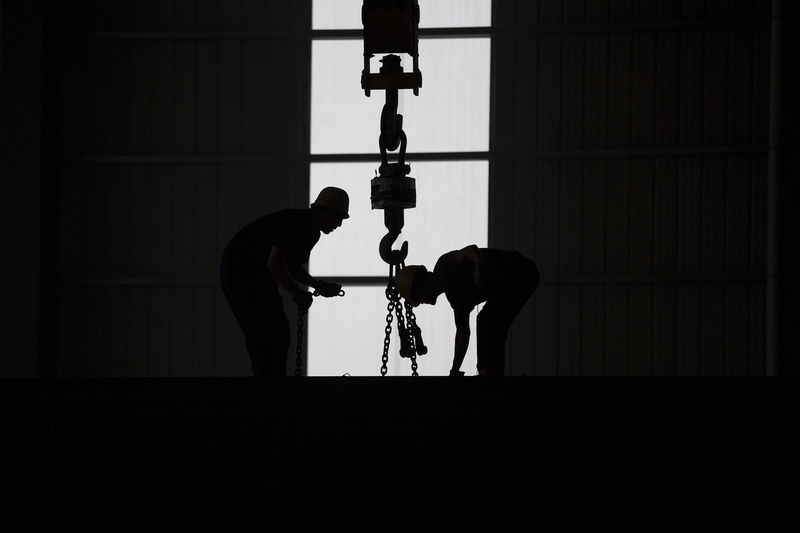(Repeats earlier story for wider readership with no change to text. The opinions expressed here are those of the author, a columnist for Reuters.)
By Clyde Russell
SINGAPORE, April 28 (Reuters) - Now that the euphoria of iron ore's all too brief rally has evaporated, the question the market is grappling with is what is a fair price level for the steel-making ingredient.
Spot iron ore prices in China .IO62-CNO=MB ended Thursday at $66.42 a tonne, down 30 percent from the 17-month peak of $94.86 reached on Feb. 21.
The problem for industry participants is how to wrestle with the factors that have driven, or are likely to drive, prices for the rest of the year.
The traditional method of looking at the supply-demand balance and assessing the cost of marginal supply does provide a starting point.
But if there is one thing that the market has learnt in the past year, it's that the main driver of the market is policy decisions in China, and how participants react to them.
The nearly 150 percent rally between the low of $38.52 a tonne on Dec. 10, 2015, and the peak in February caught most observers by surprise as it was largely driven by Beijing's decision to add stimulus to infrastructure spending and construction, the major demand centres for steel in the world's largest producer and consumer of the metal.
This year the expectation is that Beijing will wind some of the stimulus back, thereby trimming demand growth for steel and iron ore.
If this is the case for the remainder of 2017, this is a bearish signal for steel and iron ore prices.
A poll of the hundreds of industry participants at the Singapore Exchange's (SGX) Iron Ore Forum in Singapore on Thursday showed an increasing pessimism about the price for iron ore.
While about a third of respondents thought the spot price would average between $60 and $70 a tonne over 2017, about half thought the price would be below $60 over the course of the year.
This brings the market back to the question as to what is the price of the marginal tonne of iron ore supplied to China, and how far below that does the price have to fall to knock enough supply out to balance the market.
The majority of estimates seem to be grouped around the $60 a tonne level, this being the point at which 90 percent of seaborne iron ore suppliers are still profitable.
Certainly the higher prices of recent months led to a flurry of tonnes being shipped to China from what can broadly be described as alternative suppliers, which are countries outside the three major exporters Australia, Brazil and South Africa.
KNOCKING OUT SMALL SUPPLIERS
Chinese customs data shows that a total of 270.9 million tonnes was imported in the first quarter, a gain of 12.2 percent over the same period last year.
While the major suppliers did increase their contributions, their growth rates were below the overall increase, with Australian supplies up 10.8 percent, those from Brazil by 3.8 percent and from South Africa by 3.3 percent.
India leapt into fourth spot with a massive 332.4 percent increase, supplying 9.9 million tonnes in the first quarter, or almost two-thirds of the total it supplied to China for the whole of 2016.
China's imports from Iran rose 113.4 percent in the first quarter, while those from Peru gained by 20 percent.
To be sure, China's imports are still dominated by the three major exporters, but the point is that the higher iron ore price brought alternative suppliers back to the market, and fairly rapidly.
Suppliers outside the big three provided China with 13.9 percent of its iron ore imports in the first quarter, up from 12.2 percent for the whole of 2016.
The question for the market is how quickly these extra tonnes will exit the seaborne market in response to the recent sharp decline in prices.
An iron ore miner based near India's east coast, speaking on the sidelines of the SGX iron ore event, said his company had managed to ship some cargoes to China this year, but when the price dropped below $70 a tonne it knocked them out of the market.
Industry consultants CRU presented data at a forum on Wednesday that estimated that about 50 million tonnes of the around 100 million tonnes supplied annually to China by producers outside the big three was fairly elastic, meaning it will respond to lower prices and exit the market.
But it's also possible the market will have to lose more higher-cost tonnes, given the expected arrival of more than 100 million tonnes of new low-cost production from Australia and Brazil by the end of 2018, as the last of the major projects ramp up output.
The top Australian miners, Rio Tinto (LON:RIO) RIO.AX , BHP Billiton (LON:BLT) BHP.AX and Fortescue Metals Group FMG.AX have reduced the cash cost of producing a tonne of iron ore to below $15 a tonne, meaning that once all the other costs, such as freight and taxes, are added in they can still be profitable at a spot price of less than $40.
It's a similar story for Brazil's Vale VALE5.SA , even though its freight charges are higher given the longer shipping distance to China.
Overall, it would appear that iron ore will have to spend some time below $60 a tonne in order to knock out alternative seaborne supplies, as well as ensure that high-cost Chinese domestic miners don't resume operations.
But of course, this assumes that the authorities in Beijing don't spring any surprises on the market.
(Editing by Christian Schmollinger)
